|
Tribal Tensions Threaten New Republic Fighting erupted in Juba, the capital of South Sudan, on Sunday, 15 December 2013, within the presidential guard. Fighting quickly spread to Yei, Kajo Keji, Bor and Bentieu. The Failure of the Secular State This violence has its roots in decades of unresolved ethnic tensions between the Nuer and Dinka tribes. There are painful memories and wounds that were buried for the sake of peace at Independence, 9 July 2011. However, the buried wounds did not disappear, but festered. As the fighting has split along ethnic lines between the Nuer and Dinka tribes, church leaders have pointed out that the government of South Sudan was wrong to have taken the bad advice of Jimmy Carter to attempt to establish a secular state. Building on Sand The new government of South Sudan does not have Bible readings, or prayer, in parliament, much to the outrage of many of the citizens. South Sudanese Christians have said that after the tremendous sacrifices and support of Christians to achieve independence for South Sudan, it is tragic that the new state is attempting to build a nation without a spiritual foundation. There can be no political solution to the complex conflicts between the tribes. Only in Jesus Christ can South Sudan be united and strong. Conflict in South Sudan Presents Khartoum with an Opportunity to Sieze the Oil Fields The conflict and chaos in South Sudan presents the Arab government in Khartoum (North Sudan) with a perfect opportunity to invade and sieze the oil fields of Abyei, Unity and Upper Nile. Dissension and Division The crisis which has exploded in South Sudan has its roots in decades of unresolved ethnic tensions. In 1991, in the middle of the brutal war with the Arab North, as the South sought to survive genocidal Jihad from the National Islamic Front, Riek Machar (a Nuer) split from the SPLA (Sudanese Peoples Liberation Army). Building on his tribal support base, Riek Machar built up a political and military movement made up almost exclusively of Nuer tribesmen. Surrogates for the Arab North On 15 November 1991, Nuer fighters under the command of Riek Machar massacred over 2,000 Dinka in Bor, the capital of Machar's home state, Yonglei in Upper Nile. Years of brutal and vicious violence between the Nuer and Dinka followed. In 1997, Riek Machar formerly allied with the National Islamic Front regime in Khartoum. The Arabs heavily supported Machar in his fight against the SPLA. Reportedly, the SPLA suffered more casualties at the hands of Riek Machar's faction than even directly from the Arab government. Devastation and Destruction Some of the most devastating fighting, including the destruction of vast herds of cattle, the life blood of the Dinka, created much bitterness. Some of the most devastating fighting of the war occurred between the Nuer and Dinka in Unity and Upper Nile states. National Reconciliation After the victory of the SPLA against the Arab North, Riek Machar and his Nuer fighters were absorbed into the government of South Sudan and his Militia were amalgamated into the SPLA South Sudan Army. In the spirit of reconciliation, Riek Machar was made Vice President. Oil Conflict
On 8 June 2013, the (Northern) Sudan islamic president suddenly, and unilaterally, blocked the flow of oil from South Sudan, violating both international and bilateral agreements. This threatened to cripple South Sudan's economy, heavily dependent as it is on the export of oil. On 30 June, President Kiir sent Vice President Machar to Khartoum to secure South Sudan's oil rights. However, Machar, the one-time ally of Islamist Khartoum, negotiated in such a way that Arab diplomats reported that they would only dialogue with Juba if South Sudan was run by Riek Machar. Not only did Machar fail to get the oil flowing, he presented South Sudan as weak and divided. Islamic Invasion The government of Sudan responded on 3 July, by launching aerial attacks and ground invasions of South Sudan's Unity and Upper Nile states. Yida refugee camp, where thousands of Nuba refugees were housed, was targeted. While the South Sudan Army (SPLA) was able to repluse the invading Sudan Armed Forces (SAF), the political damage had already been done. Confrontation Riek Machar, who had created this crisis, now demanded that President Salva Kiir stand down. Opposition to President Kiir mounted. With Machar agitating for the resignation of the president, Kiir issued a presidential decree on 23 July 2013, removing Machar as vice president. Machar's Nuer allies, and all other oppositon, were purged from the government and tensions soared. Escalating Crisis in the North Parallel with these tensions in South Sudan, has been an escalating crisis in (Northern) Sudan, as the bankrupt government of Sudan removed subsidies on the price of fuel. As prices for food and fuel escalated, the disllusioned citizens erupted in anger against their inept government, whom Islamists blame for allowing the secession of South Sudan. Preparing for a New War As the crisis in Khartoum has spiraled out of control, dictator Omar Al-Bashir's regime has embarked on unprecedented military build up, purchasing combat aircraft, upgrading and expanding their Southern bases, and recruting foreign mercenaries. As Khartoum clearly prepares for war, to solve its political and economic problems, their one-time ally and surrogate, Riek Machar, has apparently been working in concert to destabilise South Sudan. Divide and Conquer It would appear that the Islamic government of North Sudan is fostering divisions in South Sudan through their ally Riek Machar, in order to create conditions to justify their invading and siezing the oil fields of Abyei, Unity and Upper Nile. Refugee Crisis Over 25,000 refugees have fled to Adjumani, and over 400,000 South Sudanese refugees have fled to Uganda. Oxfam reports 75,000 refugees have arrived at Awerial on the banks of the Nile. There are an estimated 200,000 internal refugees who have fled their homes. Medecins Sans Frontiers describes the humanitarian situation as "verging on the catastrophic." Escalating Conflict There have been reports of a South Sudanese Army general killed in an ambush. Fighting has escalated in Bor, the capital of Jonglei state. Forces loyal to rebel leader, Riek Machar, reportedly control the town of Bentiu, the capital of oil rich Unity state. Machar's forces have reportedly looted and burned the market town of Malakal. Church Calls for Negotiations Church leaders have called for a cease-fire, negotiations and peace. Cease-fire talks began in Ethiopia on 3 January, but the violence continues. The Need to Build South Sudan on Biblical Principles The problems now occurring with tribal conflict, supplied and funded by the Arab government of Northern Sudan, should be a wake-up call for those who thought that they could build a nation without a spiritual foundation. Only in Christ can the South Sudanese find unity. The secular state approach has clearly failed. "Unless the Lord builds the house, they labour in vain who build it…" Psalm 127:1 Resources for Understanding the History of Sudan To understand the background to the current crisis in Sudan read Faith Under Fire in Sudan and see the Sudan DVDs, available from www.christianlibertybooks.co.za. Pray for South Sudan Pray for the Christians at risk in (Northern) Sudan and South Sudan. Mobilise your church, school, family and friends to earnestly interceede for peace, with justice, in South Sudan and the Nuba Mountains. Dr. Peter Hammond Frontline Fellowship P.O. Box 74 Newlands 7725 Cape Town South Africa Tel: 021-689-4480 Fax: 021-685-5884 Email: [email protected] See other articles: South Sudan Celebrates Struggle for Secession Sudan Government Destroys Churches and Attacks Bible Colleges in Khatoum Genocide in Nuba Mountains Christians Targeted in the Nuba Mountains of Sudan Pray for Christians Under Fire in Nigeria, Sudan and Tunisia
0 Comments
Leave a Reply. |
Archives
July 2024
Categories
All
|
"And Jesus came and spoke to them, saying, “All authority has been given to Me in heaven and on earth.
Go therefore and make disciples of all the nations, baptizing them in the name of the Father and of the Son and of the Holy Spirit,
teaching them to observe all things that I have commanded you; and lo, I am with you always, even to the end of the age.” Amen.” Matthew 28: 18-20
Go therefore and make disciples of all the nations, baptizing them in the name of the Father and of the Son and of the Holy Spirit,
teaching them to observe all things that I have commanded you; and lo, I am with you always, even to the end of the age.” Amen.” Matthew 28: 18-20
|
P.O.Box 74 Newlands 7725
Cape Town South Africa |
|
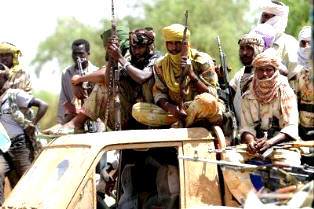
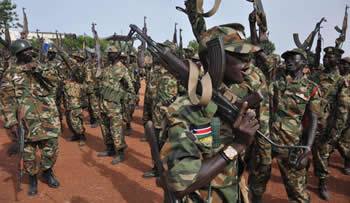
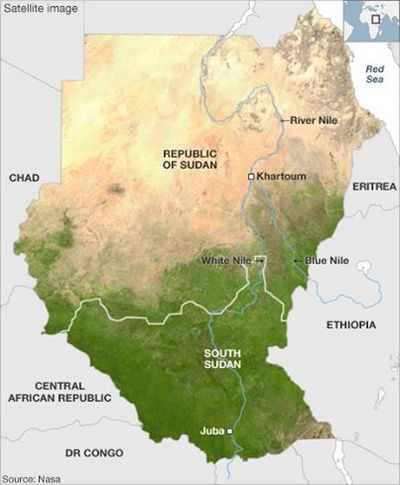
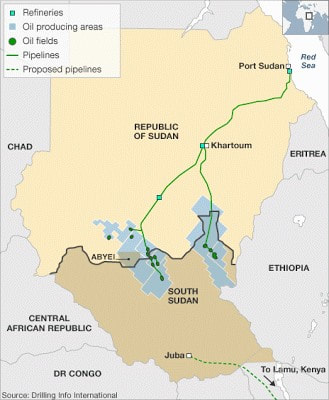
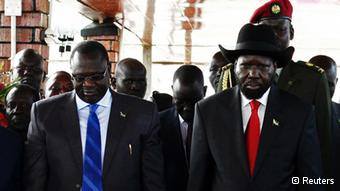
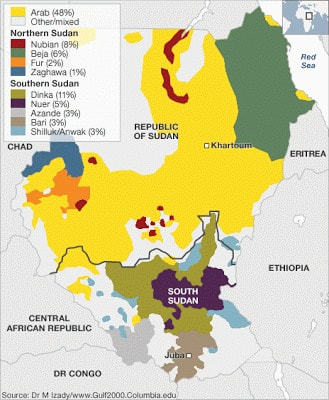
 RSS Feed
RSS Feed
